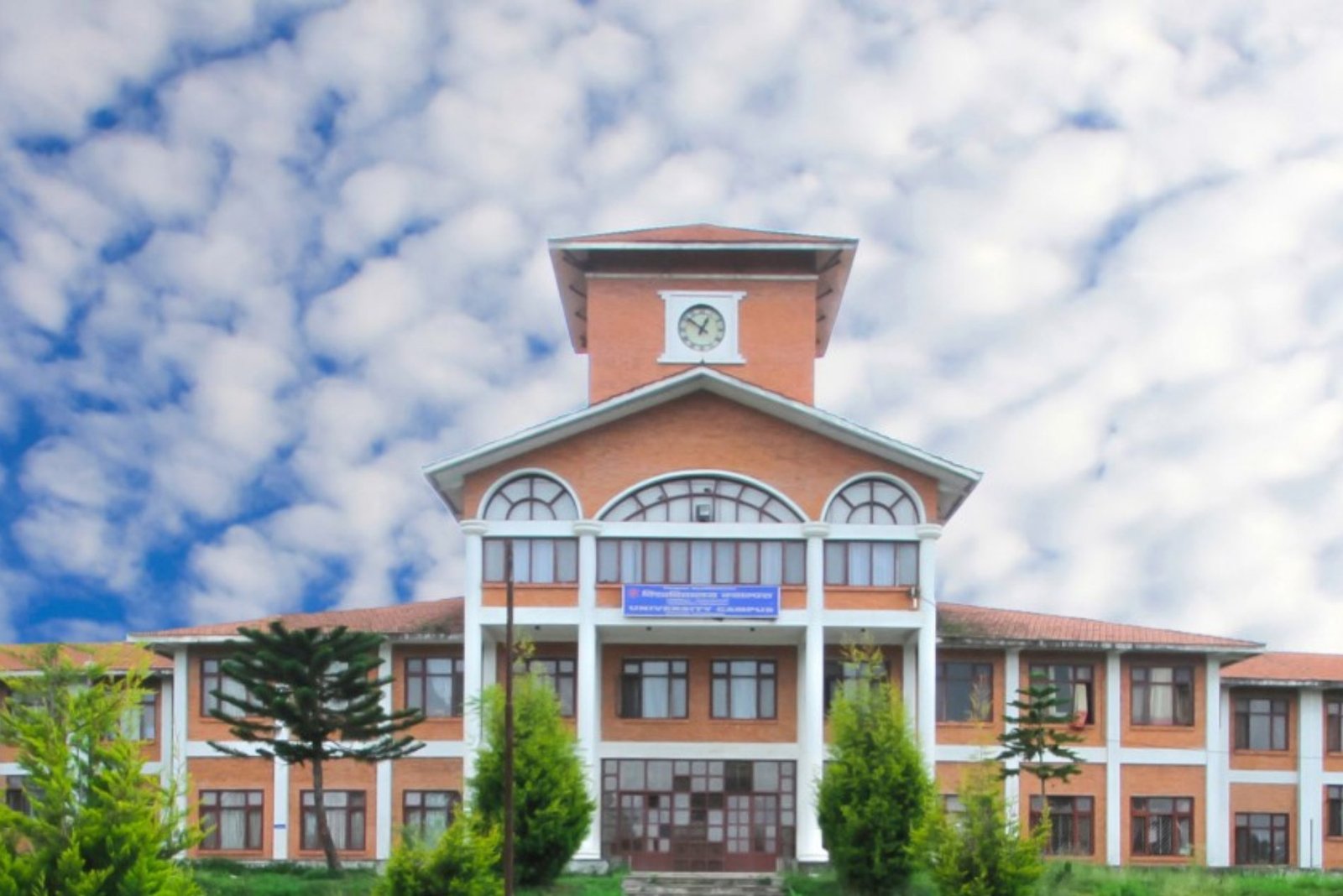Table of Contents
ToggleIntroduction
When it comes to higher education in Nepal, Tribhuvan University (TU) stands out as a beacon of academic excellence and innovation. Established in 1959, TU is not only Nepal’s oldest and largest university but also a hub for academic and research activities. Nestled in the ancient town of Kirtipur in the Kathmandu Valley, TU offers an unparalleled blend of rich history and modern education systems, making it the top choice for students from around the globe.
Overview
With an impressive network comprising over 60 constituent campuses and 1,100 affiliated colleges, Tribhuvan University offers education to a vast number of students across Nepal. The university is structured into five main faculties, each offering a variety of undergraduate, graduate, and postgraduate programs, ensuring comprehensive academic coverage. These faculties are:
- Faculty of Humanities and Social Sciences
- Faculty of Management
- Faculty of Education
- Faculty of Law
- Faculty of Science and Technology
History and Mission
Historical Significance
Named after the late King Tribhuvan, TU was founded in 1959 with the mission of expanding access to higher education across Nepal. Over the past six decades, the university has played a crucial role in shaping the educational landscape of the country. From its humble beginnings, TU has grown exponentially, both in terms of physical infrastructure and academic offerings.
Mission
The mission of Tribhuvan University is to provide quality education, foster research, and act as a catalyst for economic and social development. By producing graduates who are well-equipped to meet the demands of global and local challenges, TU aims to contribute significantly to various fields of society.
Also Read: Purbanchal University (PU)
Vision and Core Values
Vision
Tribhuvan University’s vision is to emerge as a premier academic institution characterized by excellence in teaching, research, and community service. The university aspires to create an inclusive, innovative, and globally interconnected academic environment.
Core Values
- Academic Integrity: Upholding the highest standards of academic honesty and ethical behavior.
- Innovation: Encouraging creativity, critical thinking, and problem-solving skills.
- Inclusivity: Ensuring that education is accessible to all segments of society, including underrepresented communities.
- Global Engagement: Nurturing partnerships with international institutions to facilitate cross-border academic exchanges and research collaborations.
Academic Programs
Tribhuvan University offers a myriad of programs across its five major faculties, catering to a wide range of academic interests and career aspirations.
Faculty of Humanities and Social Sciences
This faculty is one of the largest at TU, encompassing various departments:
- Economics
- English
- Geography
- History
- Political Science
- Sociology and Anthropology
Courses in the Faculty of Humanities and Social Sciences are designed to foster analytical thinking, cultural understanding, and ethical values. Graduates often pursue careers in public service, policy-making, academia, and more.
Faculty of Management
Recognized for its robust business and management programs, this faculty offers:
- Bachelor of Business Studies (BBS)
- Master of Business Administration (MBA)
- Master of Public Administration (MPA)
The curriculum aims to equip students with the skills needed in today’s competitive business environment, blending theoretical knowledge with practical experience.
Faculty of Education
Focused on producing skilled educators, this faculty offers degrees like:
- Bachelor of Education (B.Ed)
- Master of Education (M.Ed)
- M.Phil in Education
Courses include both rigorous academic coursework and practical teaching experiences, preparing future teachers, administrators, and educational planners.
Faculty of Law
The Faculty of Law is dedicated to providing comprehensive legal education through programs such as:
- Bachelor of Laws (LLB)
- Master of Laws (LLM)
Students gain a deep understanding of legal principles, which prepares them for careers in law, judiciary, and legal academia.
Faculty of Science and Technology
Home to cutting-edge research and education in the sciences, this faculty offers programs in:
- Biotechnology
- Environmental Science
- Information Technology
- Physics
- Engineering
With state-of-the-art laboratories and facilities, this faculty is at the forefront of scientific research and technological advancements.
Admission Process
Application Submission
Prospective students must fill out an application form, providing relevant academic credentials and other necessary documents.
Entrance Exam
Most programs require applicants to pass an entrance exam that assesses their aptitude and subject knowledge.
Interview
Some faculties conduct personal interviews to gauge the applicant’s motivation, skills, and suitability for the program.
Selection Notification
Successful candidates receive admission offers, which they must formally accept to enroll in their chosen program.
Student Life
Facilities and Infrastructure
The sprawling TU campus in Kirtipur is a blend of traditional architecture and modern facilities, including:
- Library Systems: Extensive collections of books, journals, and digital resources.
- Laboratories: Advanced laboratories for science, technology, and engineering students.
- Hostels: Affordable and well-maintained accommodations for students from different parts of the country and abroad.
- Sports Complex: Facilities for football, basketball, athletics, and other sports.
- Cafeterias: Multiple dining options offering a variety of cuisines.
Extracurricular Activities
TU offers a vibrant campus life with numerous extracurricular activities, clubs, and organizations that cater to diverse interests:
- Debate and Oratory Club: Enhances public speaking and argumentative skills.
- Tech Club: Focuses on the latest technological trends and coding.
- Arts and Culture Society: Celebrates and promotes Nepali arts and culture.
- Sports Clubs: Various sports clubs for cricket, basketball, volleyball, and more.
Community Initiatives
Research and Innovation
Tribhuvan University is committed to research and innovation, with multiple research centers and institutes dedicated to various fields:
- Research Centre for Educational Innovation and Development (CERID): Focuses on innovative educational practices and policies.
- Centre for Economic Development and Administration (CEDA): Engages in socio-economic research and policy analysis.
- Centre for Nepal and Asian Studies (CNAS): Dedicated to the historical, cultural, and social study of Nepal and Asia.
Community Outreach
TU actively participates in community service, focusing on:
- Public Health Initiatives: Conducting health camps and awareness programs.
- Sustainability Projects: Promoting environmental conservation and sustainable practices.
- Educational Outreach: Providing educational resources and support to remote areas.
Alumni Network
Notable Alumni
Tribhuvan University has a strong network of notable alumni who have made significant contributions in various sectors:
- Madhav Kumar Nepal: Former Prime Minister of Nepal.
- Dr. Baburam Bhattarai: Renowned economist and former Prime Minister.
- Kul Ratna Tuladhar: Esteemed scientist and academician.
- Manisha Koirala: Acclaimed actress and U.N. Goodwill Ambassador.
Alumni Engagement
To foster a strong connection between past and present students, TU engages its alumni through:
- Alumni Chapters: Regional and international chapters for networking and support.
- Mentorship Programs: Alumni mentor current students to guide their academic and professional journeys.
- Guest Lectures and Workshops: Alumni share their expertise and experiences through regular events.
Final Thoughts
Tribhuvan University, with its commitment to academic excellence, research, and holistic development, continues to be a leading educational institution in Nepal. Whether you’re a prospective student, a researcher, or an educator, TU offers an environment that fosters growth and innovation.
From its rich history and diverse programs to its robust research initiatives, vibrant campus life, and notable alumni, Tribhuvan University stands as a testament to quality higher education in Nepal. As you consider your higher education options, TU emerges as a compelling choice that promises a transformative educational experience.



